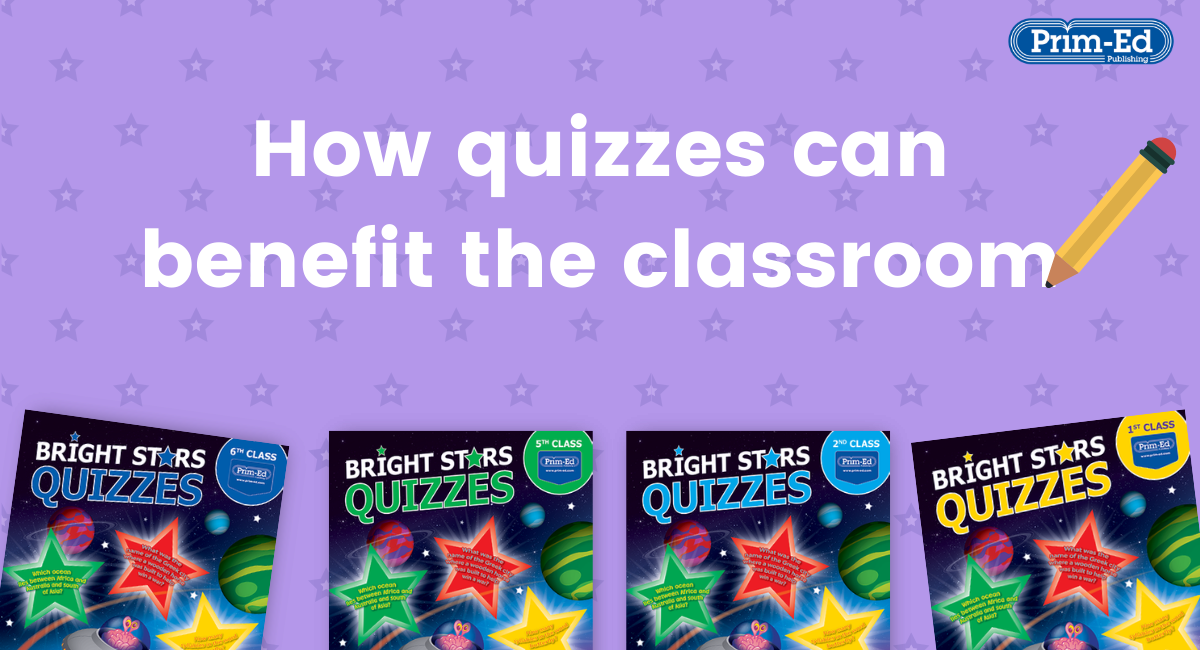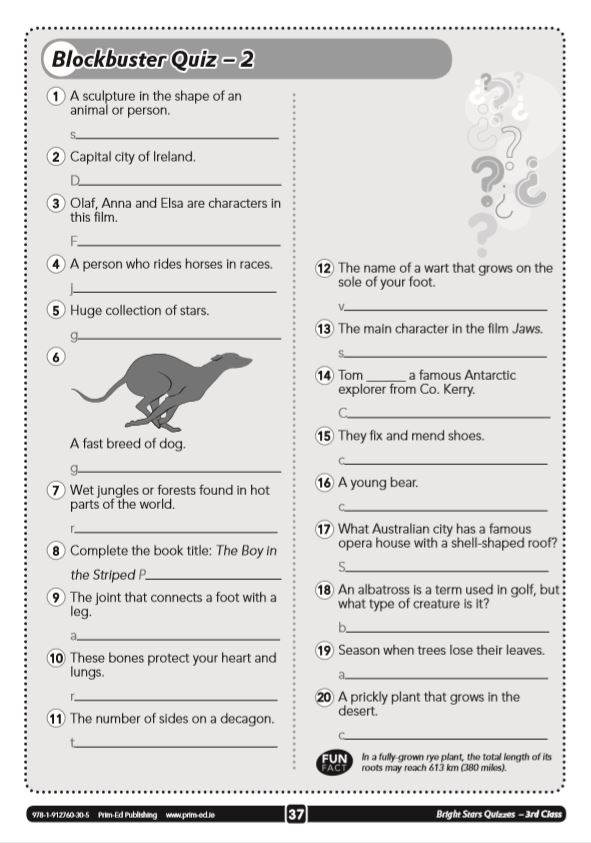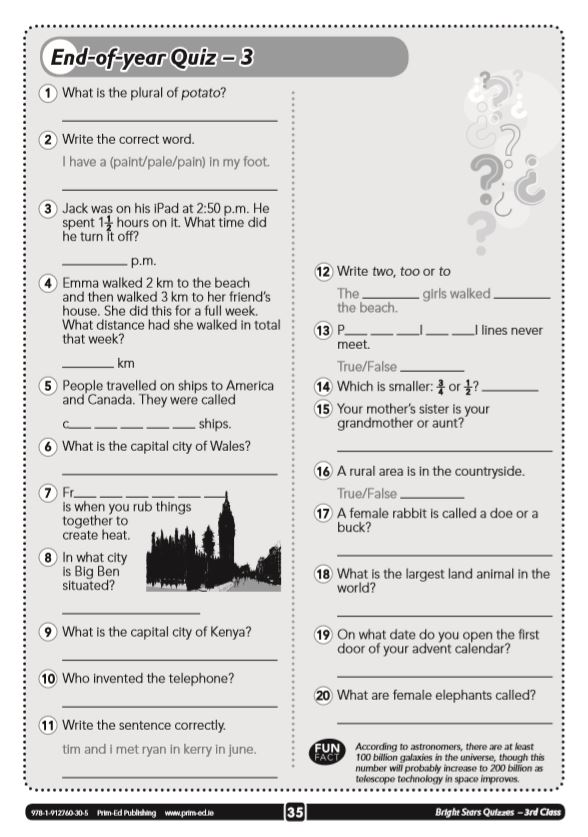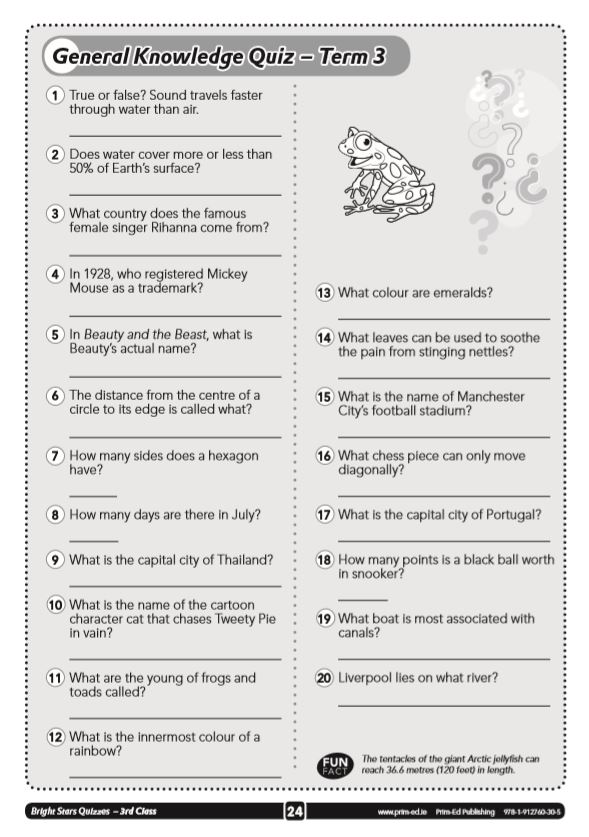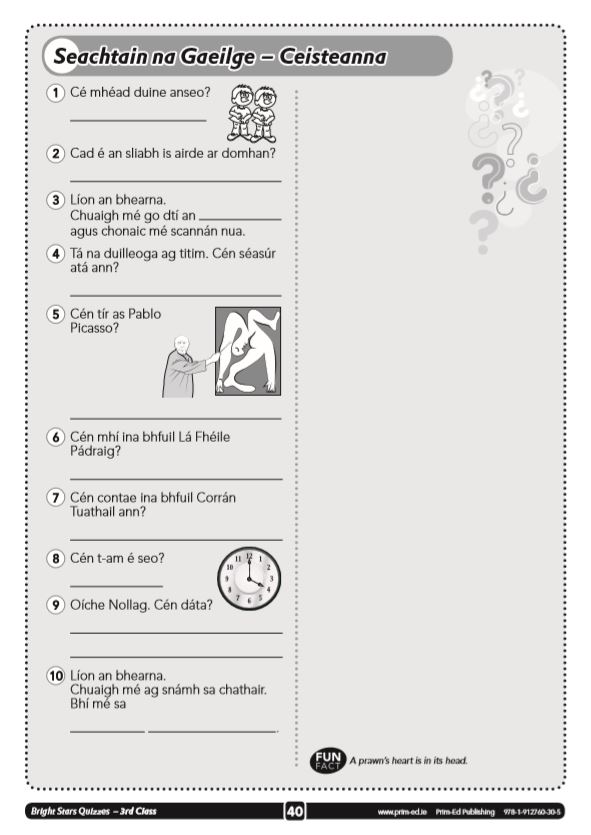- Wednesday 30 October 2019
Teaching is changing. Today, there is more focus placed on equality and welfare, and supporting pupils through their learning. Thankfully, the old way of 'drill and kill' has mostly gone by the wayside in favour of different teaching tools that are more effective at fostering a love of learning while reinforcing and consolidating skills. One of our favourite resources is quizzes!
Why are quizzes so valuable?
Not only are quizzes fun for pupils, they are also a sneaky form of learning as they don't feel like a traditional activity. Quizzes can help your pupils practice existing knowledge while stimulating interest in learning about new subject matter.
Collaboration in small groups
You can set your quizzes to be completed individually or in small groups. In groups, pupils can brainstorm to help each other. Some of the discussions they could have would never happen in an individual test.
Do quizzes help us retain information?
Retrieval does, in fact, aid retention of a concept, as found by Roediger, Putnam and Sumeracki (2011). You can read a snippet from the article here:
https://www.researchgate.net/publication/291166244_Ten_Benefits_of_Testing_and_Their_Applications_to_Educational_Practice. Reading information, then consolidating and testing that knowledge in the form of a quiz is an effective way of helping retain the information.
Quizzes can help identify gaps in knowledge
Once pupils have completed a topic, why not hold a quiz on what they have covered? It is a fun way to end a lesson, while showing the teacher if there are any gaps or areas they need to cover again in more depth. Leaving the answers open-ended can produce some great results.
Quizzes can help revision
To help pupils prepare for an upcoming exam or test, why not prepare a quiz to highlight any gaps in learning? It will also create a template of keywords and phrases for pupils to memorise. Ten keywords or sentences is a lot easier to remember as a guide, and seems far less daunting than having to revise the whole topic.
With this in mind, we are going to delve into our Bright Stars Quizzes series. This series is a set of three books for ages 5-7, 8-10 and 11+. In each book there are 40 quizzes, accompanied by a teacher notes page for each quiz. They can be presented and marked in a variety of ways, allowing pupils to work individually or in groups. Recording sheets are provided to record pupils’ results. Suggestions for expanding the topics in each quiz are also provided, covering a range of curriculum and skill areas. Each of the 40 quizzes include 15 questions selected from the following topics:
- Maths
- Animals
- General knowledge
- Historical events and places
- Language
- Sport
- Technology
- Famous people
- Geography
- People of the world
- Performing arts
- The environment
- Literature
- Our body
Each quiz consists of a variety of question types. Half of the questions for each quiz use prompts to help pupils establish the correct answer. The question types using the prompts are:
- multiple choice
- missing words (e.g. 'A meat-eating plant is the Venus ...')
- true or false
- first letter provided (e.g. 'What, starting with 'w', is a unit of electrical power?')
The difficulty of the questions varies within each quiz, with some questions more likely to require access to resource materials (an atlas). Each question requires between a one- and three- word answer, with the majority requiring only one word. For most questions, there will only be one correct answer; however, the teacher may need to use their discretion in some cases.
Suggestions for presenting and expanding the quizzes
- The quizzes may be given orally to the pupils by the teacher, but as some of the questions will require research, it is suggested the quizzes are photocopied to be answered by individual pupils or groups of pupils.
- Teachers may like to set up a weekly competition among groups of pupils.
- The quizzes may be made self-competitive, with each pupil plotting his/her progress from week to week. All results should be recorded on the class record page.
- Teachers may mark the quiz completed by each pupil or call out the correct answers for pupils to mark the quizzes themselves. This may also encourage debate about the answers.
- Teachers could give a time limit for the pupils to complete each quiz.
- Pupils may like to create their own topical quizzes to challenge the class, using quizzes from the book as a template.
- The 'Further Exploration' and 'Internet Challenges' given for each quiz could be expanded further by teachers or pupils. For example, teachers may ask pupils to complete an entire project on one of the topics.
- Teachers may ask each pupil to complete the quiz individually, then call out the answers to mark. Once marked, the teacher can place the pupils in groups so they can explain their answers and help each other research the correct information.
Each quiz has a teacher notes page to accompany it, which is broken down as follows:
BEFORE THE QUIZ explains any difficult vocabulary within the questions that teachers may need to explain before pupils complete the quiz. A list of suggested resources pupils may need to access for each quiz is also provided. Note: It is assumed that pupils will have access to a range of reference books/encyclopedia to assists in the quizzes.
ANSWERS for each quiz are provided.
FURTHER EXPLORATION contains activity suggestions from a range of curriculum areas based on five of the questions from each quiz. Teachers may wish to use these with a whole class or allow individual pupils or small groups of pupils to complete one or more of the activities.
DID YOU KNOW? is a snippet of additional information based on one of the questions, provided for pupils' interest. Teachers may task pupils to research other questions and provide their own snippets of information.
Suggestions for exploring the question selected for 'Did you know?' is provided in the form of an INTERNET CHALLENGE. Pupils can complete this individually or in small groups. Adult supervision will be required as pupils will need to used internet access.
What the authors had to say:
'The idea for the quiz books came about from constantly having to research questions related to the different topics and themes that were being taught in the classroom. Finding there was no such product on the market, we set out with the intention of creating a resource to fill that gap. It was always evident in the classroom that the children responded well to a quiz type of assessment, upon completion of a particular topic or theme. They enjoyed the challenge of testing their knowledge and testing themselves against their peers. It was fun and it was engaging. We thought it would be a good idea to pull all the questions together in a fun and child-friendly way and incorporate both themed quizzes, like questions on the Normans or the human body, as well as having quizzes that included questions relating to all areas of the curriculum, from maths to science and history. In our experiences, the children also liked to complete the quizzes as part of a team. This encouraged teamwork and active participation from all. It also added to the sense of competition within the classroom. The pupils enjoyed doing this as part of 'golden time'.
As a teacher at the senior end of the school, the time would inevitably come around every year for the local first round of the Credit Union quiz, and indeed other quizzes. Emily and I had exhausted our resources and struggled to find new resources and questions, hence another reason for working with Prim-Ed to produce this series of quiz books. Quizzes are excellent for learning new facts and keeping minds sharp.
The introduction of the ‘Fun Fact' on every page has made it extremely child-friendly and engaging; those inquisitive minds are reading and obtaining new information all the time.'
Cróna Nic tSeachlainn
Teacher of 3rd-6th Class
Scoil Mhuire, Belcruit, Kincasslagh, Co. Donegal
Emily Uí Chnáimhsí
Class teacher
Woodland National School, Letterkenny, Co. Donegal
